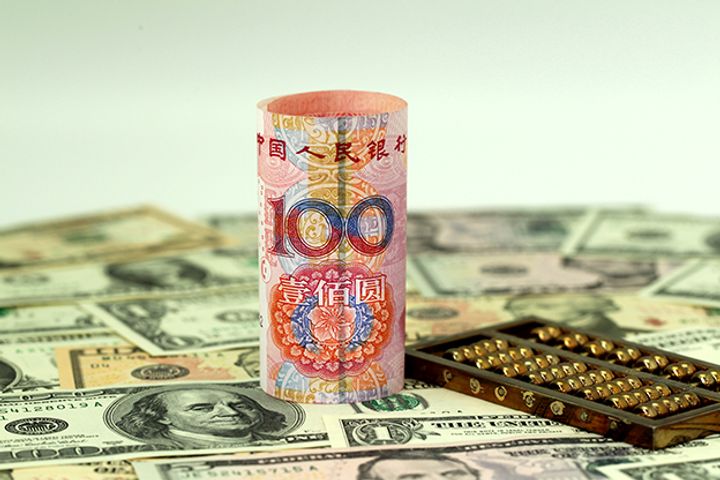 Yuan Hits One-Year High Against US Dollar; 'China's Monetary Policy Becomes More Independent'
Yuan Hits One-Year High Against US Dollar; 'China's Monetary Policy Becomes More Independent'(Yicai Global) Aug. 23 -- The central parity of the yuan against the US dollar rose to a one-year high yesterday. A stabilizing yuan will help contain capital outflows and improve the independence of China central bank's monetary policy, which will produce far-reaching implications on financial market stability, an expert told Yicai Global.
The Chinese yuan to the US dollar mid-rate rose to a one-year high of 6.6597 yesterday, passing 6.66 at one point.
"Individuals and businesses have changed their foreign currency strategy, given a sharp yuan appreciation in the first half of this year," Liu Jian, a senior researcher at the Financial Research Center of Bank of Communications Co. [SHA:601328; HK:3328], told Yicai Global. "Over the longer term, the yuan is set to move in both directions on a stable basis."
The yuan's two-way volatility against the dollar will help disrupt the unilateral expectations in the exchange rate market, rein in capital outflows and improve domestic liquidity conditions and liquidity expectations, Liu noted.
"A stabilizing yuan will help China depeg the yuan from the dollar in the real sense," said Liu. "China's monetary policy mainly focuses on serving the domestic economy in the first half, meaning its monetary policy has become more independent," he added.
"Compared with outbound direct investment, individuals face few restraints in forex purchases," said foreign exchange analyst Han Huishi. "Expectations for the yuan depreciation among individuals have weakened substantially this year, according to latest data."
Though July economic data missed expectations, they have just limited impact on the yuan's exchange rate, Liu said, commenting on the short-term trend of the currency's exchange rate. He expects the yuan to be on a steady and increasing trend in August and September since individuals and businesses have changed their foreign currency strategy, given a sharp yuan appreciation in the first half.
However, Liu also mentioned that the yuan is likely to see corrections in the fourth quarter. Domestic economic data could decline in the fourth quarter compared with the first half. Second, the dollar index may pick up if a strengthening euro weighs on eurozone exports although such increases will not be big.
From an interest rate spread perspective, domestic interest rates rose in the first half of the year on financial regulation and deleveraging, Liu said. However, interest rates are unlikely to keep going up in the second half and may even fall.